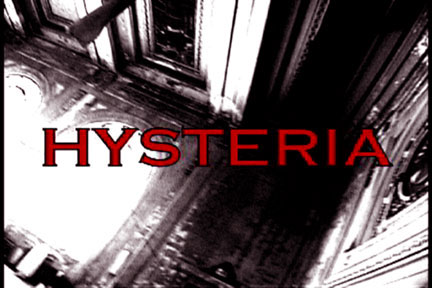
Berkeley filmmaker Antero Alli compares his creative cycle to agriculture: There is the fallow season, and there is the harvest. On Saturday, "Hysteria," the fruits of this season's labor, premieres at Fine Arts Cinema on Shattuck Avenue. "I don't create out of a casual place," Alli said on a busy Sunday afternoon at his Berkeley home about two weeks before the film's opening. His films, he says, "come out of a sense of urgency."
Alli, 49, has been making films since 1990 and writing plays since 1976. Over the years, he has developed a work pattern of six months of obsessive devotion to filmmaking and other projects, and then six months to recharge in his occupation as an astrologer. He and his wife, Sylvi, are the core members of Vertical Pool, Alli's Berkeley-based production company. At times, as many as 50 to 100 people collaborate on Vertical Pool projects. His filmmaking is not meant to please a wide audience -- "I haven't found a mainstream bone in my body," he says -- but to help him explore and establish his own questions.
"Crisis in religion and political choices, strong ethical quandaries" are the threads running through his works. His last feature, "Tragos," a futuristic tale of pagans whose rituals center around virtual reality, received a handful of reviews but was seen by a limited audience. But Alli calls "Hysteria" his most accessible work. "I hope the movie acts on the viewer," he says. "I hope they are entertained." If "Hysteria" is as well received as Alli hopes, he'll send it to film festivals, including Sundance.
In September, Alli and "Hysteria" co-writer Jakob Bokulich were working on a short film about one man wrestling with his personal demons. Then the news came that the twin towers were burning and the Pentagon had been attacked. Thousands were dead, millions more affected. "It rendered what we were making frivolous," Alli said. He chose to focus his fourth feature-length film on the emotion of hysteria: hysterical anxiety, hysterical laughter, hysterical reactions to religion. His lead character embodies the last, a devout person who becomes fanatical and destructive.
"There was in my eyes such a strong religious component to the attackers' mindset," Alli said. He hadn't seen that theme explored in film, Alli said, so he decided to "make the movie that I've never seen that I want to see." "Hysteria" began with the story of seven children reported to have had visions of the Virgin Mary at Medjugorje, in Croatia, beginning in 1981. While six reported seeing the Virgin repeatedly, one, Ikar, saw her only once. Although he devoted himself to the Virgin for years, he received no more visions.
As "Hysteria" opens, we meet Ikar, now a man and a Croatian soldier. Ikar, played by Bokulich, gets his vision at last -- unknowingly induced by a hallucinogenic tea. Already steeped in fervent devotion, he interprets the "vision" as a mission sent to him by the Virgin, and he moves to the United States -- to Oakland -- to carry it out. "He was waiting for eight years" for a vision, Alli said. "He won't doubt it now."
Alli blends the story of the religious devotee with elements from the Greek myth of Icarus. From an outside perspective, Alli says, Ikar is clearly on a destructive path, as was Icarus. But the belief in the vision can be overpowering. Out of the military, yet retaining the urge to fight, Ikar takes up boxing. And true to his vision, he boxes for Mary. "Ikar's boxing is married to his religion. They are one and the same for him," Alli said. "That begins the interface between religion and violence."
Alli admits it is impossible to know what the Sept. 11 hijackers were thinking, and what religion meant to them -- and that the intersection of religion and violence is confounding. But Alli's film does not try to provide answers; it's meant to introduce questions about violence and religion. "It can be shown, it can be exposed," if not understood, he said.
"The most interesting questions really can't be answered."